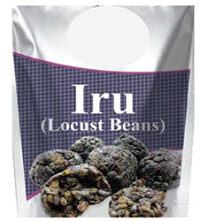Frozen Ewedu
Frozen Food – This vegetable is the main ingredient in ewedu soup. It has many health benefits.
The leave of this frozen food provides low calorie and an adequate source of fibre which has made it key in weight management. Also, some certain traditional healthcare providers have used the leaf in the prevention of constipation, dysentery and infestation of worms. In fact some old Asian health specialists have reported to have used it for pain and pile reduction.
Ewedu is used in many dishes in West Africa. The seeds are used as a flavouring. The dried leaves can be drunk as tea. It is rich in beta-carotene, iron, calcium and vitamins C & E.
Frozen Ewedu – Ewedu Soup
Ingredients
Ewedu leaves 300g
1/2 tea spoon of powdered potash
1.5 cups of water
Ewedu
Salt
Maggi (1 or 2 cubes)
Chilli Pepper
4-5 tea spoons of ground crayfish
- Open your packet of Asiko frozen ewedu. Defrost ewedu for 3 – 4 hours.
- Pour 1.5 cups of water to a cooking pot and heat to boiling point, add the frozen ewedu, soak the half teaspoon of potash in half cup of water and filter into the pot.
- Cook for 7-10 minutes.
- Mash leaves into small pieces in pot. If possible use a blender
- Pour blended ewedu in the pot.
- Add ground crayfish, maggi, salt and pepper.
- Allow to simmer for five minutes.
- Serve your ewedu soup with a meat stew with either amala, eba, semo or pounded yam. This a great dish. It is very popular meal amongst the Yoruba people
Cooking Your African Cuisine with Delicious New Ponmo
£2.40 – £94.50
.
Ponmo is cow skin that has been processed for consumers to cook and eat. In Nigeria, ponmo is used to cook a wide variety of dishes, soups, sauces and even snacks or finger food such as;
Creative Ways to Explore Ewedu Leaves in your African Cuisine
£0.80 – £16.00
Ewedu soup is a soup created by the Yoruba ethnic group similar to Okra soup, it is made from Jute leaf, hence it is known as Jute leaf soup. The soup is drawy in texture and goes with Nigerian beef stew and fish stew. Ewedu soup takes about 12 minutes to prepare and is best served with pounded yam, Fufu and Amala. Pluck jute leaf rinse with water and blend, then add crayfish, locust bean also known as iru and salt to give it desired taste. Ensure you do not add too much water, also you can ignore the use ijabe (traditional broom) used to pound and kaun (potash) since you are using a blender.
How to make the Perfect Meal with Frozen Royal Ponmo
£2.80 – £45.00
Ponmo is used for cooking many delicacies in west African countries like Nigeria, Ghana, Togo, Cameroon etc, and also in west Indian and the Caribbean. It is a good weight loss meat that is unique with less calories and tastes nice when properly cooked in dishes. Cow skin is very hard to eat if not properly cooked and takes time to cook before eating.
Indulge in the Deliciousness of Locus Beans in your African Cuisine
£1.14 – £46.40
Parkia biglobosa, known in English as the African locust bean is a perennial deciduous tree in the family Fabaceae. It is found in a wide range of environments in Africa and is primarily grown for its pods that contain both a sweet pulp and valuable seeds. Where the tree is grown, the crushing and fermenting of these seeds constitutes an important economic activity. Various parts of the locust bean tree are used for medicinal and food purposes. As a standing tree, locust bean may have a positive effect on the yield of other nearby crops.
Nigerian Delicious Flavoured Frozen Locust Beans. (Approx 100g)
£1.14 – £46.40
Iru (also known as dadawa/dawadawa, ogiri, ogirisi, ugba, netetou, kainda or soumbala) are the fermented beans of the Parkia biglobosa locust tree that grows throughout West and Central Africa. They are a popular traditional ingredient in many West African cuisines, particularly in Nigeria, where they add depth and complexity to stews, soups, meats and vegetables.
Where Can You Buy Frozen Ewedu Leaves
£0.80 – £16.00
Tips
- Do not cook the ewedu soup for too long. Only bring it to a boil and simmer for about 3 minutes.
- If your iru is frozen, soak in hot water for 10 minutes, then drain.
- Traditionally, only ground crayfish is added to ewedu soup, since it is almost always paired with stew. You can use any spices of choice.





